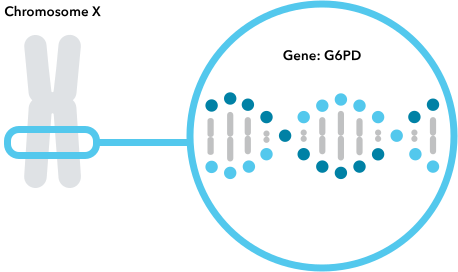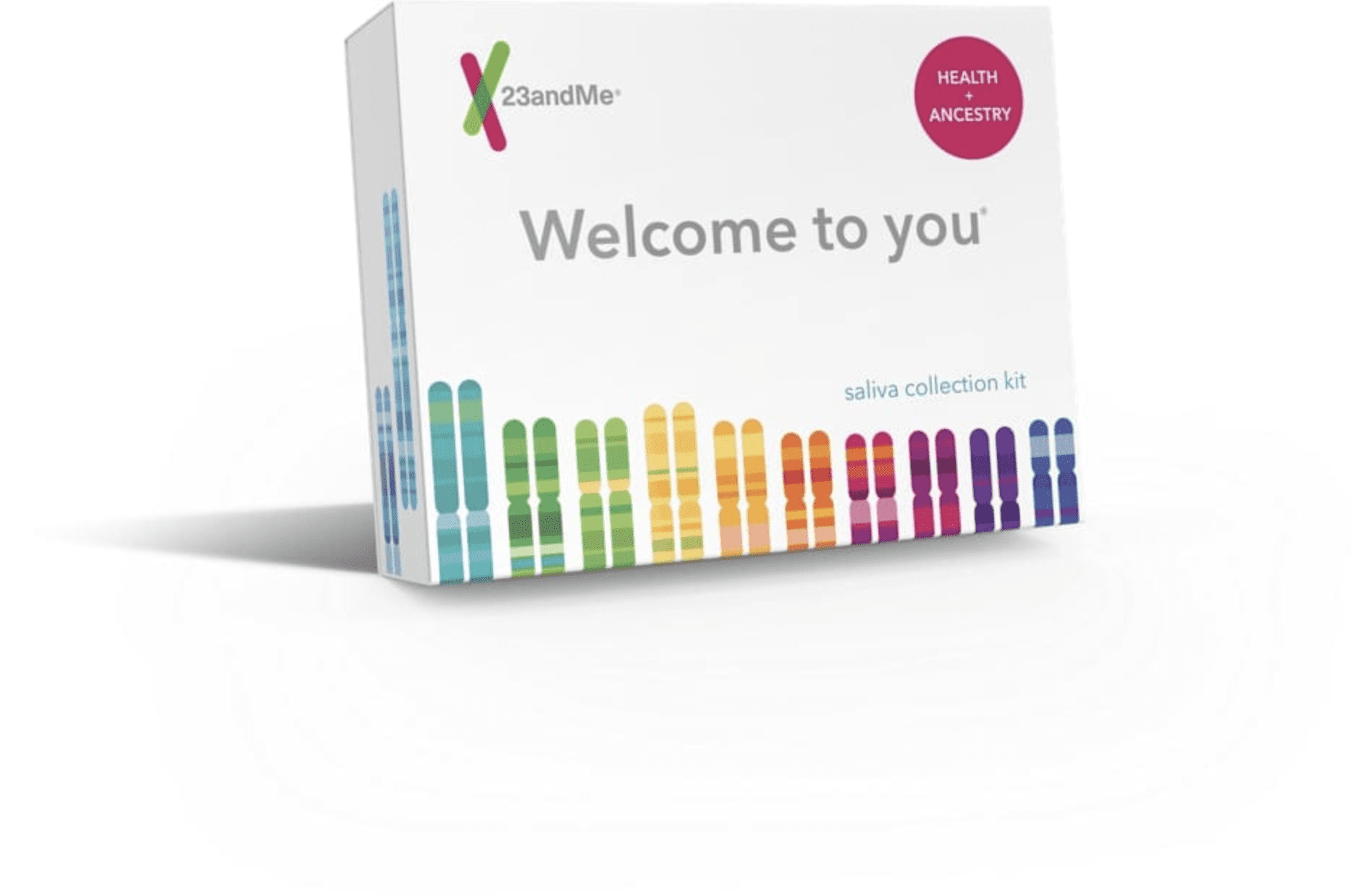Is G6PD Deficiency Genetic?Explore G6PD Deficiency and what your DNA can tell you
What is G6PD deficiency?
Glucose-6-phosphate dehydrogenase (G6PD) deficiency is a disease that impacts red blood cells. An enzyme called G6PD helps protect red blood cells from damage. (An enzyme is a type of protein that helps carry out chemical reactions in the body). In people with G6PD deficiency, the G6PD enzyme doesn’t work properly. As a result, red blood cells are destroyed upon exposure to certain environmental triggers, which can lead to episodes of anemia.
Is G6PD deficiency genetic?
G6PD deficiency is a genetic condition involving a gene called G6PD. The G6PD gene contains instructions for making an enzyme that plays a role in protecting red blood cells against damage. Certain genetic variants (differences) in the G6PD gene reduce the levels or activity of the enzyme. This can lead to the destruction of red blood cells in response to certain medications, infections, and foods.
The G6PD gene is located on the X chromosome, which means that males have one copy of this gene and females have two.

Who is affected?
Approximately 500 million people worldwide have G6PD deficiency. The condition occurs most frequently in people from certain parts of Africa, Asia, the Middle East, and the Mediterranean. About 1 in 10 African-American males has G6PD deficiency. Because of the way it is inherited, males are more likely to have this condition than females.
Did you know?
People with G6PD deficiency typically don’t develop symptoms unless they are exposed to certain triggering factors. Triggering factors can include certain foods, medications, and infections.
Find out if your genetics might increase your risk of developing symptoms of G6PD deficiency
The 23andMe G6PD Deficiency Genetic Health Risk report* can tell you whether you may have an increased risk of developing symptoms of G6PD deficiency based on your genetics. The 23andMe G6PD Deficiency Genetic Health Risk report looks for two variants in the G6PD gene that are most common in people of African, Hispanic or Latino, Southern European, Kurdish Jewish, Middle Eastern, Central Asian, and South Asian descent.. You can get this report and more through the 23andMe Health + Ancestry Service.

Health + Ancestry Service
*The 23andMe PGS test uses qualitative genotyping to detect select clinically relevant variants in the genomic DNA of adults from saliva for the purpose of reporting and interpreting genetic health risks. It is not intended to diagnose any disease. Your ethnicity may affect the relevance of each report and how your genetic health risk results are interpreted. Each genetic health risk report describes if a person has variants associated with a higher risk of developing a disease, but does not describe a person’s overall risk of developing the disease. The test is not intended to tell you anything about your current state of health, or to be used to make medical decisions, including whether or not you should take a medication, how much of a medication you should take, or determine any treatment. The G6PD Deficiency genetic health risk report is indicated for reporting of the V68M and S188F variants in the G6PD gene and describes if a person has one or more variants linked to G6PD deficiency and an increased risk for episodes of anemia. The variants included in this report are most studied in people of African, Southern European, Kurdish Jewish, Middle Eastern, and Central and South Asian descent.
References
National Organisation for Rare Disorders. “Glucose-6-Phosphate Dehydrogenase Deficiency.” Retrieved August 1, 2024 from https://rarediseases.org/rare-diseases/glucose-6-phosphate-dehydrogenase-deficiency/.
U.S. National Library of Medicine. (2023). “Glucose-6-phosphate dehydrogenase deficiency.” MedlinePlus.
World Health Organisation. (2022). “Technical consultation to review the classification of glucose-6-phosphate dehydrogenase (G6PD).” Retrieved December 6, 2023, from https://www.who.int/publications/m/item/WHO-UCN-GMP-MPAG-2022.01.